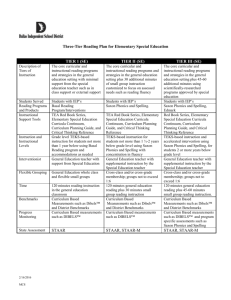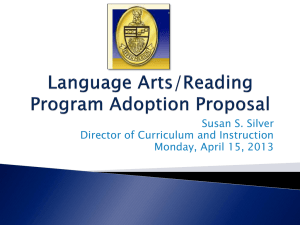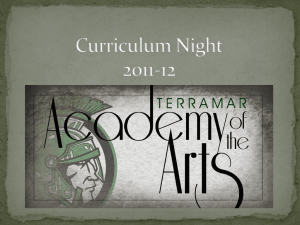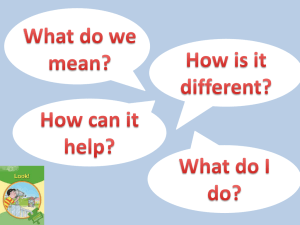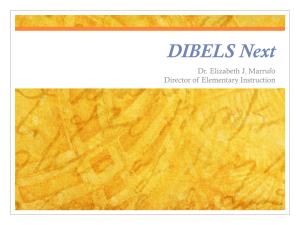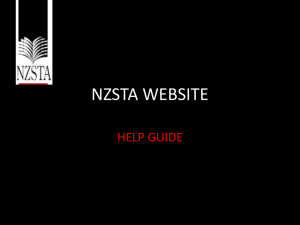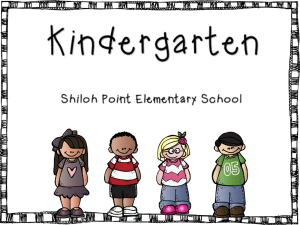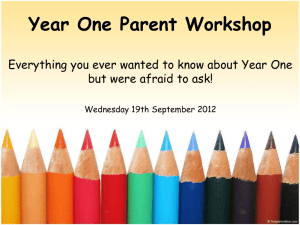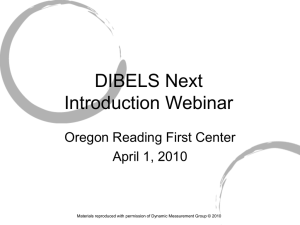Literacy Intervention Toolkit
advertisement
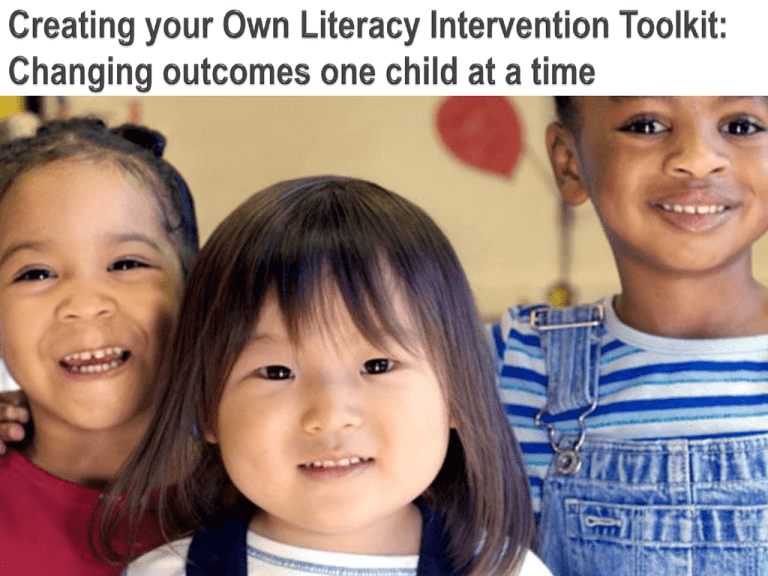
We need to work SMARTER, not harder! Literacy Intervention Toolkit This is what you do Next! The Literacy Intervention Toolkit is an all-in-one resource for K–2 reading teachers that: •Provides an overview of DIBELS and the new measures in DIBELS Next. •Responds directly to DIBELS and DIBELS Next outcomes by setting the stage for engaged, targeted interventions • Provides tools and activities for: Diagnostic testing (the missing link between DIBELS and intervention instruction) Planning and organizing effective lessons Implementing engaging, motivating, multisensory instructional activities Literacy Intervention Toolkit Materials • The Teacher Guide with the Reproducible Tools for diagnostic testing and lesson-planning. • The Instructional Activity Tools, for implementing intervention lessons: 50 Nifty Activities for 5 Components and 3Tiers of Reading Instruction and the 50 Nifty Manipulatives Kit Power Readers (books and interactive whiteboard files) Letter Tiles for Phonics and Spelling (interactive whiteboard files) Rigorous: reads manifesting, demonstrating or exercising rigor: very strict synonyms: harsh, severe The Merriam – Webster online dictionary Please consider as we go forward today whether reading intervention is driven by engagement as well as data in your school and/or classroom? “There is no comprehension strategy powerful enough to compensate for the inability to read the words” * Dr. Joseph Torgesen 8 70% Accurate In the _____ of _____, nothing is ______. Some ______ ______ life-size ____ out of tall _____ and shrubs. A ______ careful ______ and _______ can _____ ______ paths. _____ cut and shape plants into _______, larger-than-life and _____ leafy ______. What would you do if you _____ a _____ full of these ______? _____ you walk right in? 9 80% Accurate In the world of ______, nothing is ______. Some ______ create life-size ______ out of tall bushes and shrubs. A _______ careful planning and clipping can ______ ______ paths. ______ cut and shape plants into _______, larger-than-life and _______ leafy _______. What would you do if you _________ a _______ full of these animals? Would you walk right in? 10 90% Accurate In the world of gardens, nothing is ______. Some gardeners create life-size _____ out of tall bushes and shrubs. A gardener’s careful planning and clipping can ______ strange paths. Others cut and shape plants into awesome, larger-than-life and ________ leafy _______. What would you do if you discovered a garden full of these ______? Would you walk right in? 11 Unusual Gardens In the world of gardens, nothing is impossible. Some gardeners create life-size mazes out of tall bushes and shrubs. A gardener’s careful planning and clipping can create strange paths. Others cut and shape plants into awesome, larger-than-life and incredible leafy animals. What would you do if you discovered a garden full of these animals? Would you walk right in? 12 We want to help children read fluently enough so that they are able to get in touch with their own unique thoughts about what they are reading. Maryanne Wolf Whimsical practice leading to automaticity can help a student create the formation of neuronal representations in the brain that can give the brain time to think! ◦ Maryanne Wolf Attention and Interest Multisensory Approaches Inclusive Learning Environments Challenging Discussion High Expectations Academic rigor 16 Your tool kit is NOT designed for the purpose of improving DIBELS scores….it is designed for the purpose of increasing overall reading achievement as measured by increases in DIBELS scores. There is no magic bullet – the magic is in the system of supports created by: ◦ good assessment data, ◦ thoughtful interpretation of the results, ◦ grouping students by individual need, ◦ planning instruction and ◦ evaluating the efficiency of that instruction by monitoring progress. The Toolkit Process Step 1 The Toolkit Process Step 2 Gather more information with two diagnostic tools from LETRS, Module 8: Phonics and Word-Reading Survey and Spelling Inventory. The Toolkit Process Step 3 Four scope and sequence tools, adapted from LETRS, helps teachers sequence their intervention instruction. The Toolkit Process Step 4 Two lesson-planning templates help teachers organize and design focused, engaging instruction. The Toolkit Process Step 5 The Toolkit Process Step 6 The Literacy Toolkit has found the things you need and pulled them together so you have everything at your fingertips: Using the right tool can help you to avoid getting lost in the weeds as you try to target your instruction It can help you evaluate which phonics correspondences have been learned and which have yet to be mastered. It assesses basic word reading ability at the single and multi-syllable level. It assesses the student’s ability to read high frequency words. Phonics and Word-Reading Diagnostic Tool •Students NOT meeting benchmark goals •Adapted from LETRS •Evaluates •basic-word reading ability •high frequency words •real and nonsense words Closed-syllable words with Short Vowels and Single Consonants ◦ Say: I’m going to show you some real words and some made-up words. Read them as well as you can. Real: rot/wed/bun/lap/kit/sum ____/6 Nonsense: lom/mis/pez/gom/rad/jun ___/6 Combined: rabbit/unfed/picnic/napkin/sudden/cotton ___/6 ____/18 Diagnostic Testing •Informal assessments •Below benchmark •Targets specific skills •Create instructional groups based on similarity of learning needs Upon which information will you base your groups … Scores Color of instructional recommendation? Red, Yellow or Green Specific instructional need? Developmental Spelling Inventory Tool •Adapted from LETRS •K- 5th grade assessment •Evaluates: •phonemic awareness •sound-symbol correspondence •spelling patterns •morphological concepts What about Spelling? One thoughtful step at a time leads to reading success! Phonics Instruction Phonemic Awareness Instruction Spelling Instruction Components Time State Goal and Purpose 30 seconds Review Previous Lesson 2 minutes Teach New Lesson 5 minutes Word Reading (for accuracy) 5 minutes Word Practice (for fluency) 5 minutes Dictation 5 minutes Word Meanings With Phonics Vocabulary 5 minutes Text-Reading Practice 10 minutes (95 Percent Group Inc., 2007)/ LETRS Mod 7 adapted p. 74 5 critical components of reading Intervention lessons focus on phonemic awareness, phonics and fluency HOWEVER… The activities are ALWAYS designed within the context of oral language, vocabulary and comprehension. ◦ 50 Nifty Activities for 5 Components and 3Tiers of Reading Instruction and the 50 Nifty Manipulatives Kit What is decodable text: ◦ Vocabulary controlled by phonics patterns ◦ Limited and repeated sight words ◦ Follow a thoughtfully constructed scope and sequence of skill introduction ◦ Short but meaningful plot that engages interest ◦ Provides opportunity to apply skills learned ◦ Before reading activities maximize accuracy and fluency ◦ Before-During and After reading comprehension instruction maximize benefit Read like a detective...close reading enhances comprehension Power Readers start teaching to the common core standards from the get-go! 39 40 Each story is six pages 41 or Rapid Letter Naming 42 Preview vocabulary (all the words in the story) Students read and repeat: ◦ Vocabulary words ◦ Vocabulary phrases ◦ Vocabulary sentences Some comprehension questions at the end of the books focus on vocabulary, especially multiple meanings and idiomatic expressions 43 44 45 46 Teaching Reading is URGENT! 47 Your tool kit is NOT designed for the purpose of improving DIBELS scores….it is designed for the purpose of increasing overall reading achievement as measured by increases in DIBELS scores. There is no magic bullet – the magic is in the system of supports created by: ◦ good assessment data, ◦ thoughtful interpretation of the results, ◦ grouping students by individual need, ◦ planning instruction and ◦ evaluating the efficiency of that instruction by monitoring progress. Care about your students with passion Work with passion Teach with passion Believe in your students with passion Believe in yourself with passion Believe passionately in your ability to change their lives “It is not how much we give but how much love we put into giving.” Mother Teresa 52
